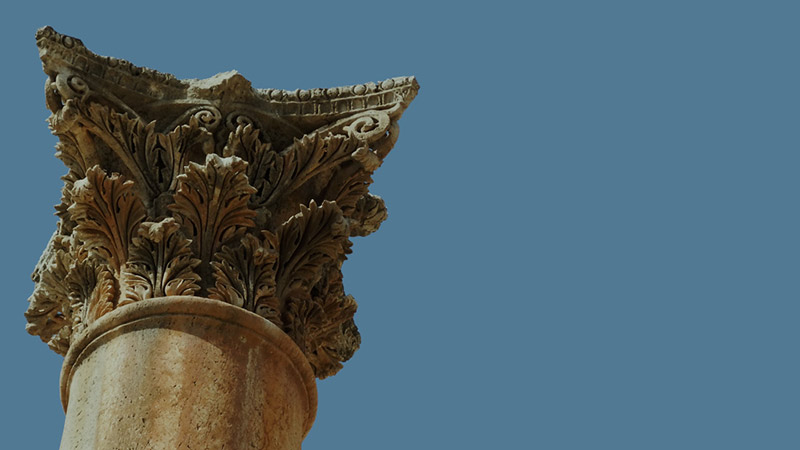More Results
Showing 12 of 41
Encyclopedia

A Galilean Family Room
This room was the center of family life. It was probably used for eating, for storing food, and for socializing with extended family. Guests could be invited in if the weather was inappropriate for dining outdoors in the courtyard.A small wooden t...
MORE
A Galilean Kitchen
This kitchen is near the door of the house. A domed oven has been reconstructed; it was probably used for heating and cooking when the weather was cold. There would be similar ovens outside for use at other times.The outer part of the oven gathere...
MORE
Azekah
Tel Azekah is a five-acre site overlooking the Valley of Elah. The Judea Mountains stand to the east. The Mediterranean Sea, located about twelve miles to the west, can be seen from the tel.Archaeologists have identified at least four levels of ci...
MORE
Basalt Crusher
This crusher is found at Capernaum, Jesus' home-base (Matthew 4:13), near the synagogue. The local basalt "a hard, volcanic black rock" made excellent crushers and other types of grinders.Jesus frequently saw crushers and millstones like...
MORE
Burial Practices
Burial PracticesThe BodyAccording to Jewish interpretation of the Old Testament Law, burial had to occur within 24 hours (Deut. 21:23). This was partly due to the climate in Israel, and partly because the body was considered to be ceremonially unc...
MORE
Features of the Gymnasium in Sardis
The Palaestra In this large (six hundred by one hundred fifty feet) open area in front of the Marble Court, physical education was done on the sand floor. Smaller rooms around the outside were also used for physical training, conditioning (weights...
MORE
Gamla
Gamla is often called the "Masada" of the north because of the siege and fall of the town to the Romans during the Jewish Revolts. The city was originally settled by a group of Jews returning from captivity around 150 BC.The city is loca...
MORE
Gethsemane
This olive press is in the Capernaum, Jesus' home-base (Matt. 4:13), near the synagogue. The crushed olive pulp was placed in baskets (about four inches thick and two feet in diameter), which were then stacked several high. These baskets are barel...
MORE
Gethsemane and the Olive Press
The word gethsemane is derived from two Hebrew words: gat, which means "a place for pressing oil (or wine)" and shemanim, which means "oils."During Jesus' time, heavy stone slabs were lowered onto olives that had already been c...
MOREGlossary

Annoint Definition
To pour oil on a person's head. It meant that God's Spirit was helping that person to do a special job (1 Sam. 16:1%u201413, 1 John 2:20%u201421).
MORE
Gethsemane Definition
The word gethsemane is derived from two Hebrew words: gat, which means "a place for pressing oil (or wine)", and shemanim, which means "oils." During Jesus' time, heavy stone slabs were lowered onto olives that had already been...
MORE


















